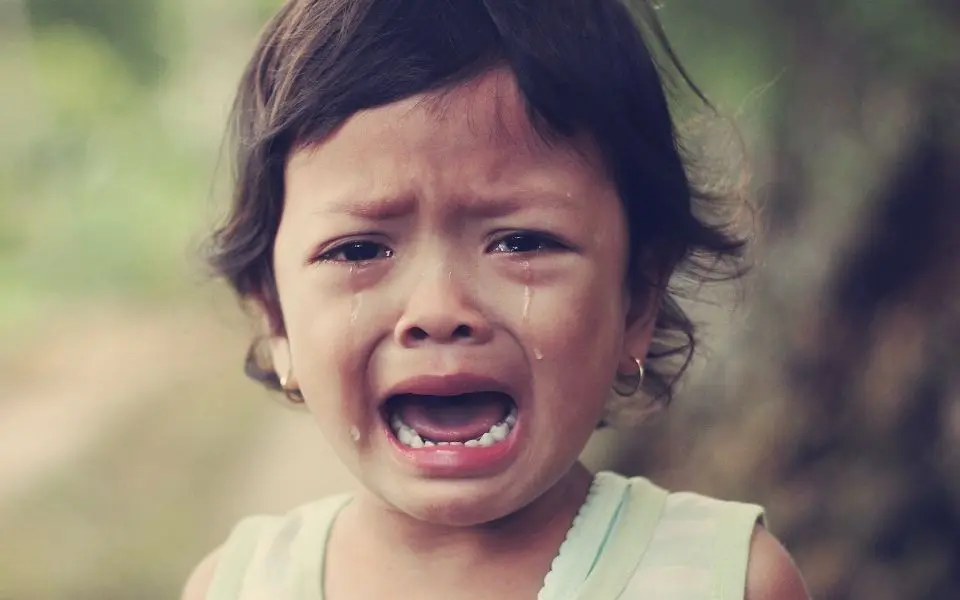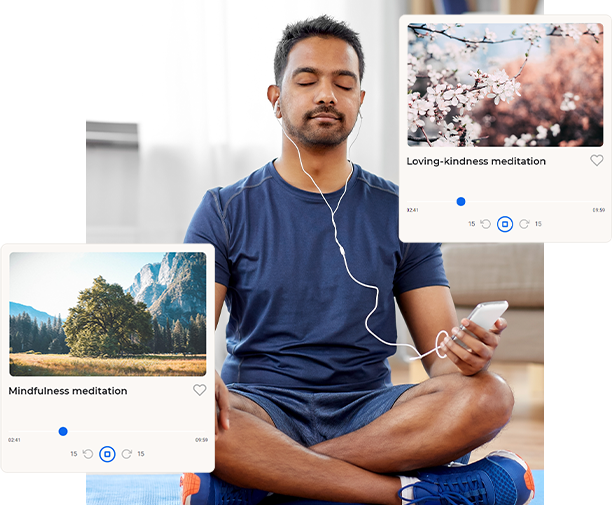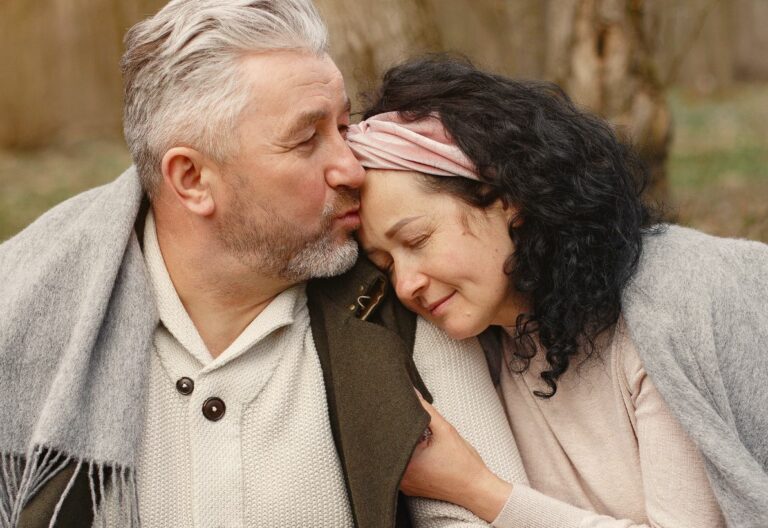Every person has dealt with distressing emotional pain at some point in their life. Emotional pain means that these are problems that deal with difficult emotions such as grief, loss, devastation, or heartbreak. While you have the power to control your emotions, the severity of these feelings can sometimes cause them to control you. When you’re dealing with emotional pain, it can disrupt your daily life if you’re not careful enough, given how overwhelming it feels. In this article, we’ll highlight what emotional pain is, how it affects the body, and how to deal with it.
What is emotional pain?
Emotional pain is the suffering you experience when dealing with difficult feelings. Experiencing grief or loss emotionally is considered emotional pain.
You may feel broken or unable to function like you usually do because your heart feels too heavy.
Mental and emotional pain is also often interconnected because your thoughts can often trigger an emotion out of you. For instance, when you feel anxious, it affects how you handle emotions and may prevent you from going about your typical routine due to fear. Emotional pain is a type of pain that is difficult to cope with and may negatively impact your life.
Even positive emotions may negatively lead you astray. You may feel happy but feel a bit of guilt if you’re euphoric with the wrong person, after the loss of a loved one, or another experience. You can experience emotional pain for any emotion – even if it’s a seemingly positive one.

How does emotional pain affect you?
It’s easy to assume that emotional pain only affects your heart and emotions, but that’s not entirely the case. Emotional pain can affect your entire body, including your brain and other body functions. It’s important to remember that the mind and body are interconnected.
Your thoughts cause emotions that result in actions. If you’re thinking of sad thoughts, you might find yourself crying and experiencing sadness. From there, you might get tissue paper to blow your nose, order a tub of ice cream, or fail to practice the common self-care ideas. Your actions might be positive, neutral, or negative. However, with emotional pain, the likelihood of self-neglect or poor judgment-making skills is more commonplace.
When your heart is broken, you can barely get up, and it aches all over your body. This type of emotional pain, if not managed effectively, can lead to physical symptoms such as nausea, dizziness, muscle pain, and a whole lot more.
When you’re dealing with emotional pain, you also have a higher tendency to be irrational and impulsive. You can make rash decisions out of the pain you’re feeling, and it can have power over your life.
How to deal with emotional pain
1. Stop shutting off your emotions
It’s a human tendency to want to shut off your emotions and numb yourself from feeling the pain, but you need to stop doing this. The more you repress your feelings, the more they will feel out of control. Bottling up emotions often leads to the explosive release of them. And that explosive release can damage relationships, make minor problems more complicated, and create more emotional pain in your life.
It would help if you let yourself feel your emotions no matter how badly it hurts. Shutting off your emotions might feel good initially, but it won’t do you any good with managing your pain. You can only cope with emotional pain by feeling your pain gradually and learning to sit with those feelings through guided meditation or yoga.
You can’t manage pain by distracting yourself and pretending it isn’t there. You’ll likely have self-sabotaging habits so that you won’t feel a thing if you shut your emotions off. However, you should also know that shutting off the pain will also be shutting off the possibility of happiness in your life. And isn’t that exactly what you need right now?

2. Move your body to curb emotional pain
There are two types of distractions you should be aware of, self-sabotaging distractions and healthy distractions. If you need a distraction to manage your emotional pain, it should be through healthy distractions such as physical activity. There’s no better way to deal with your emotions than by moving your body and giving yourself the endorphins and dopamine you need to make yourself feel good. Plus, these happy hormones genuinely do make you feel better after you’ve completed your workout.
You’ll be surprised at how much you can make yourself feel better and manage your pain by moving your body in any way possible. It doesn’t have to be anything intense since something as simple as yoga or running can reduce the emotional pain you feel. Physical activity is the best way to get out of your head and avoid dwelling in whatever emotion that’s currently destroying you and making you feel stuck.
3. Don’t play the victim
No matter who’s at fault, even if you were the one that was hurt and betrayed in your story, you shouldn’t play the victim if you think you are one. Telling yourself, you’re a victim makes you inferior to other people. It makes you feel and act smaller. If someone badly hurts you, you need to realize that you’re not a victim, but you’re a survivor.
You can always change the narrative of the story you experience in your life. They may have hurt you, but they only have power over your emotional pain if you choose to give it to them. After all, you control your emotions with your thoughts. If you change your thoughts towards something more positive, your emotions will change alongside them.
No matter what happens to you in life, you’re not a victim. After you declare yourself a survivor or accept that sometimes things outside your control will happen to you, you’ll be on your way to managing your emotional pain.

4. Find something to spend your energy on
Instead of dwelling on your grief, loss, or negative experience, you can choose to do something productive to help you heal from your life challenges and obstacles. For example, after a trauma, many people manage their PTSD by running out the rage their body consumes them with or punching a heavy bag to release the extreme tension building up within them. While not everyone likes to exercise, this is an effective way to coping with extreme emotional pain in a healthy way.
If your emotional pain is much less severe, you can choose to find a new hobby, focus on your career, or do something you’ve always enjoyed doing. Even when it’s hard to get up and away from lying in bed with your emotions, you owe it to yourself to distract your mind with something more positive.
For example, if you’ve lost a spouse or life partner to illness, you might choose to do a good deed every day in their memory. By doing an act of kindness every day, you’ll regularly start thinking about positive things that will help you heal emotionally while still doing something to remember them in their shining moments. You might volunteer for a charity they believed in or activity they loved, so you always keep their memory close to you.
While sometimes emotional pain makes it hard to get out of bed or do anything at all, remember that doing those little things every day is something worth celebrating.
Not everyone can face the day after dealing with a difficult situation. So if you can, reward yourself by doing something you love. And if you can’t, look for little moments you can do in bed, like sending someone a positive message from your phone in bed. When you help other people, even when you’re struggling yourself, it slowly builds you back up because you see your hope shine through the darkness.
5. Stop re-telling your story
Talking to a mental health professional has many benefits to help you cope with a difficult situation. However, when people don’t find a therapist, they’ll often tell the same story to every person they meet. Not only does that make you relive the pain of what happened to you repeatedly, but it also mentally exhausts your friends, family, and those around you by dragging them into your unresolved emotional pain. A mental health professional will teach you how to look at your situation differently and help you find new coping strategies for dealing with your suffering.
Instead of getting stuck in your grief, loss, or mental agony, it’s time to get practical about dealing with your emotional pain. Your emotions will always be valid, but sometimes we make ourselves feel that badly because of guilt. And until we address it, we’ll always mistreat ourselves and punish ourselves for something that happened beyond our control.

6. Start journaling your emotions
One of the benefits of journaling is having a way to let all your emotions out without the fear of judgment or criticism. Starting a journal can help you reflect, analyze, and change your emotions to get unstuck from your emotional pain.
Having a journal with you can be a platform where you express your feelings and negative thoughts unapologetically without being conscious of your emotions.
You can also choose to start a gratitude list or have journaling prompts to help you productively process your emotions and thoughts. By shifting the focus from emotional pain to gratitude, you look at your life event from a positive perspective which helps you heal.
7. Let yourself cry to deal with emotional pain
There’s no reason why you shouldn’t let yourself cry and break down. No matter what anyone else says or what your mind tells you, there’s no weakness found in crying. Allowing yourself to cry helps your body release the toxins through your tears. And if you pay close attention, you’ll notice you often feel slightly happier after a big, hard cry. That’s because you’ve released the toxins from your body. Whereas when you don’t cry, the toxins stay within you, keeping you more depressed.
Don’t fear another person’s reaction to your tears. Crying is a normal response to sadness, frustration, anger, and mixed emotions. By allowing yourself to cry, you productively respond to your feelings. If you feel like crying, it’s best just to let it all out.

8. Give yourself time to heal
Just like physical pain, you need to let yourself heal from emotional pain. It’s just as terrible and difficult to deal with as having physical symptoms, which means you need to practice self-care to feel better.
However, distracting yourself from your pain will only do more harm than good. When your emotions pile up until you can’t handle them anymore, you project your feelings to someone else. Don’t pressure yourself to feel better immediately, especially when you’ve been through so much.
Significant life changes take time to get used to. It might also change how you view the world. For example, a war veteran might always view the world from the lens of safety – am I safe? So, while you can still do things to release the negativity from within yourself, understanding that some challenges require more work is an important step in your journey.
9. Talk to someone about your emotional pain
When your pain becomes too unbearable to handle, and you don’t think you can survive it, talking to someone is a way to deal with emotional pain. Talking to someone doesn’t just mean opening up to a loved one but also talking to a counselor or therapist. Find someone who can boost your moral support as you deal with your emotional pain.
A mental health professional will help you incorporate healthy coping and defense mechanisms in managing your pain. Nobody should have to be dealing with emotional pain alone. If you think talking to a professional would help, then you shouldn’t hesitate to do so. If you find yourself getting carried away by negative thoughts, speak to a professional immediately.

10. Meditate on your emotional pain
Lastly, the most effective way to deal with emotional pain is to practice guided meditation. Whether you download the Declutter The Mind app or watch the Declutter The Mind YouTube channel, you’ll find meditations to help you cope with grief, trauma, breakups, or even simply emotions. With dozens of meditations on various emotional topics, you’ll find a meditation to suit your needs and budget. While meditation can’t replace therapy, you can do it in conjunction with therapy to help you in between sessions to reflect on your situation with gratitude, inner peace, or hope.
Conclusion
This article was able to shed insight into everything you needed to know on dealing with emotional pain. It’s not always easy to manage challenging situations, especially when you’re feeling overwhelmed with emotions. However, it’s important to learn how to pick yourself back up and move forward no matter how much your life has changed from this event. Your life may be different now, but it’s important to accept this next chapter and let go of the past.




